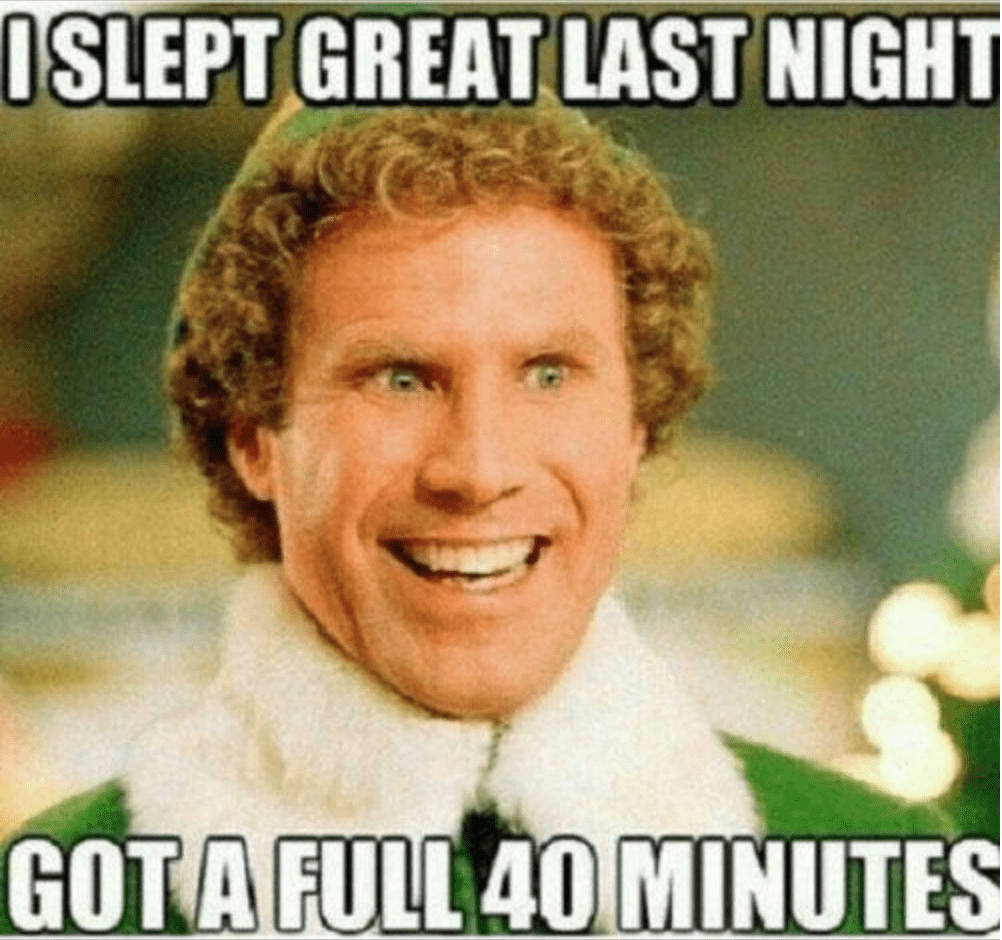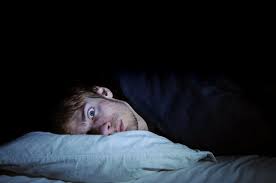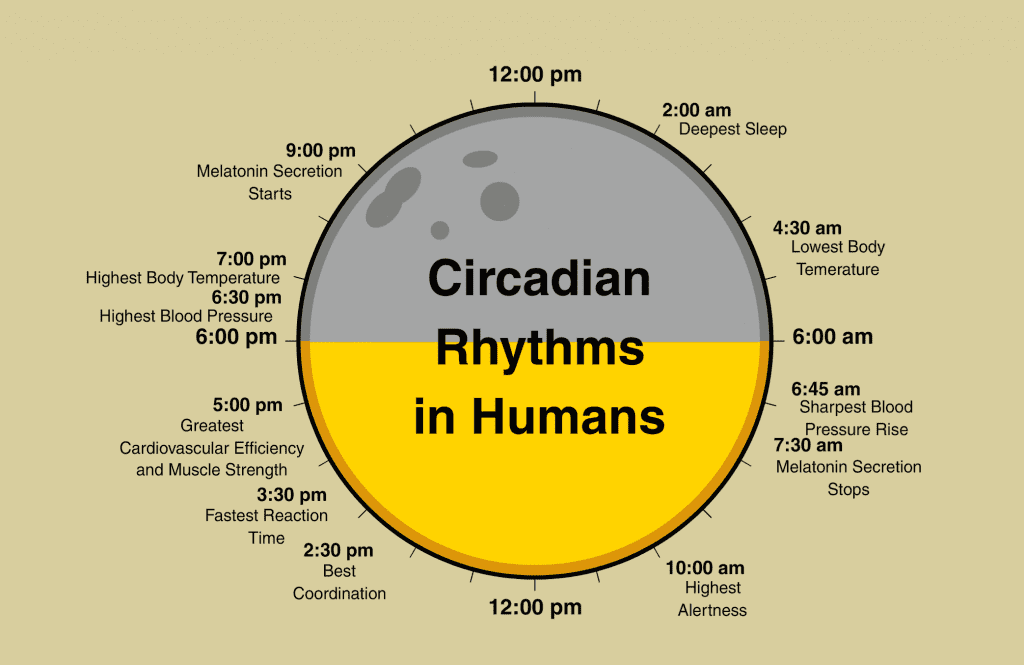Sleep and Box Breathing
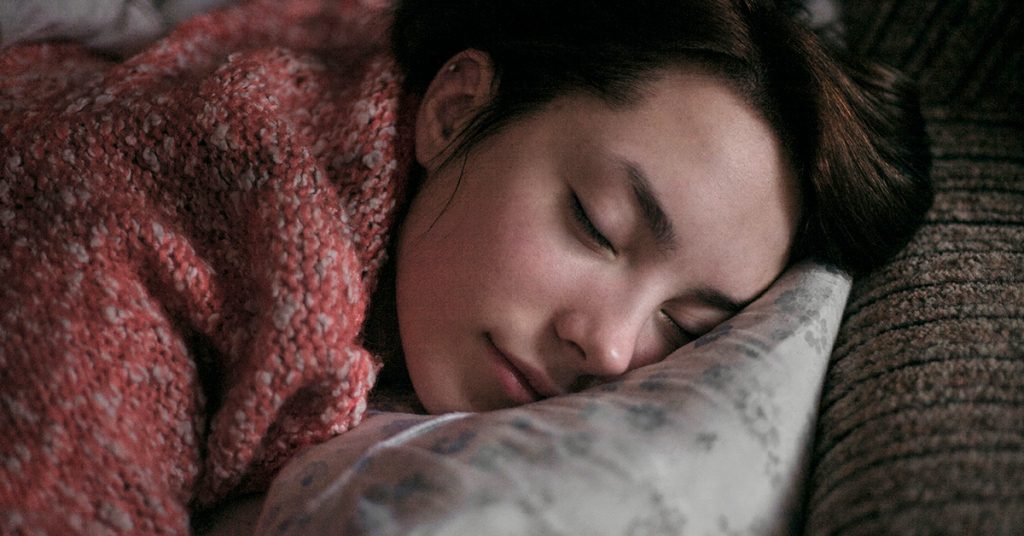
Today’s Teaching Video from Coach Kelsey:
Homework:
1) Practice Box Breathing.
2)Start to pay attention to your sleep. Is it taking more than 5-10 minutes to fall asleep? Are you waking up multiple times a night? Are you waking up at the same time every night? Do you feel rested when you wake up? What does your sleep hygiene look like? What things could you focus on tweaking as it pertains to sleep?
Start implementing some of the sleep tips if you are currently not sleeping well.
Teaching:

Sleep: A time to detox and repair the brain.
We work out of our REST Biblically speaking:
Our days and our weeks start with rest. That’s because God knows what we need and He wants us to get full of Him to be able to go serve fully. He needs to fuel our tanks to go out and run the race. Life STARTS with Him!
EVEN HEROES NEED SLEEP. WELL, ESPECIALLY HEROES.
What if I told you that a large sleep study was done comparing sleep and death that found people who slept 6 hours nightly versus those who slept 7 to 9 hours had a 21% higher risk of death during the study. And it was done over 14 years! There’s more evidence from a 22-year study that shows even worst news, even for those who use prescription sleep aids!
Sleep is not the boring part between memorable moments. It’s what makes those moments possible. When you sleep, your body and mind regenerate from the stress of the day. And the need for sleep never goes away – especially if you’re pushing yourself creatively, professionally or athletically.
FACT: More than 83 million Americans do not get enough sleep.
Why Sleep?
- Sleep is where the body recovers best, but a DEEP state of sleep is required.
- It’s your biological maintenance.
How much Sleep?
7.5-9 hours a night is average sleep need.
Understanding Sleep:
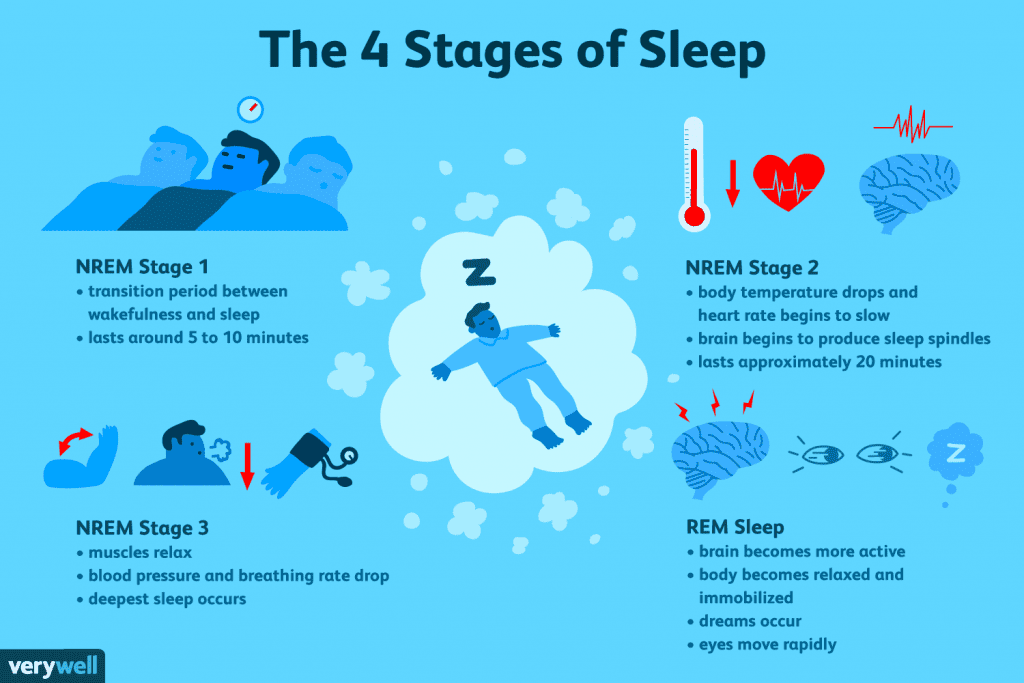
In lighter sleep stages:
- Brain waves are extremely slow.
- Blood flow is directed away from your brain and towards your muscles, restoring tissues
- Plays a major role in maintaining your health, stimulating growth and development, repairing muscles and tissues, and boosting your immune system.
In deeper sleep stages:
- Maintenance the brain.
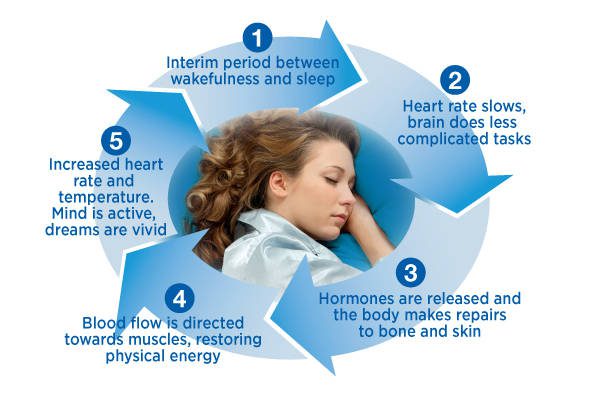
A sleep deprived brain:
-
- Tricks us into thinking we’re more hungry – it miscalculates how much energy we really need for the rest of the day (causing you to eat more)
- Makes bad decisions about food
- In a typical day we make ~250 different decisions about our food alone (when to eat, what to eat, how much to eat etc.)
- So we’re overeating the wrong things
Sleep deprivation, in combination with late night eating, causes more damage:
-
- During sleep we produce growth hormone that help repair damaged cells
- When we sleep less, we have less of this growth hormone present to repair our cells
- When we eat late into the night, our stomach is thus working late into the night to digest the food – so the stomach cannot repair itself
- Lack of growth hormone, in conjunction with food in the stomach, slows down the repair process
- This causes damage in the gut which can accumulate
- When the gut lining is damaged – allergy causing food particles or disease causing bacteria can enter the blood and cause more inflammation
- During sleep we produce growth hormone that help repair damaged cells
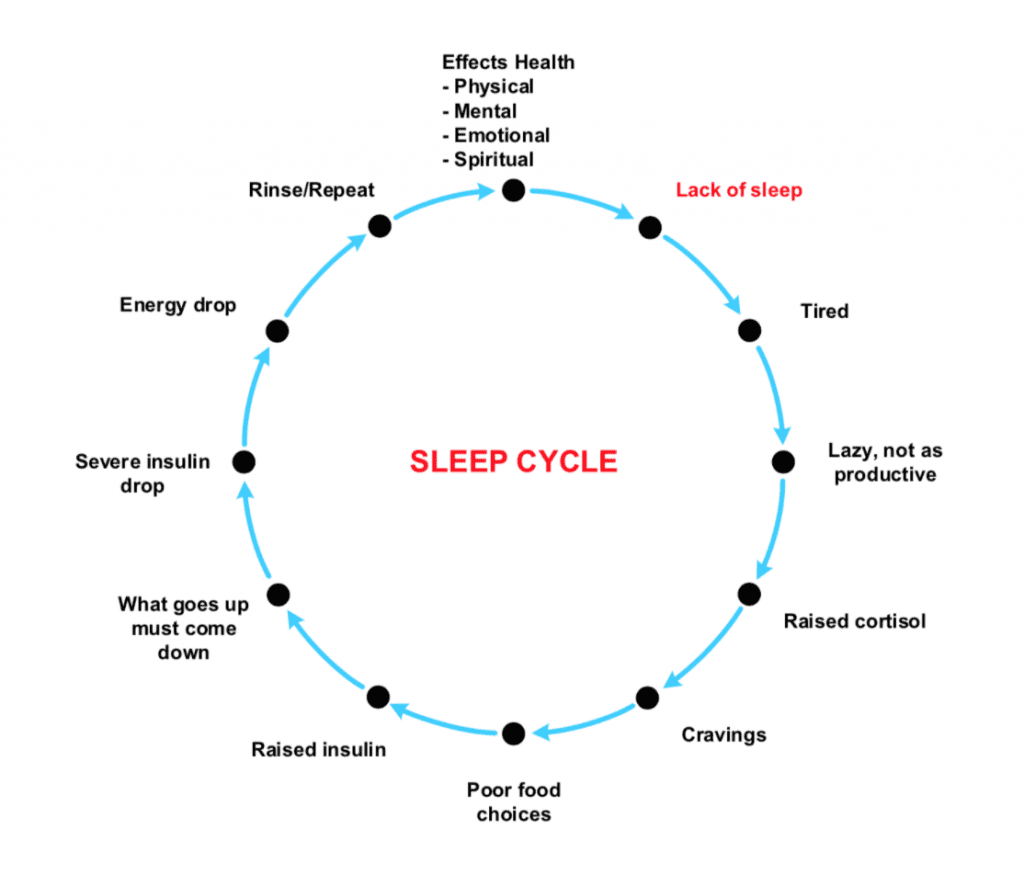
Sleep is a foundational bedrock for our ability to learn from experience. Without sufficient sleep, our ability to learn – the acquisition of new memories – begins to rapidly break down. And yet, this is only one of the major roles we now appreciate that sleep has. Sleep is critical to learning and survival because it facilitates a process similar to the input, storage, and transfer of data in a computer.

Sleep preps the brain for information input…
The formation, or “encoding,” of memories occurs when the brain engages with new information – ideas, actions, or images – and leads to the formation of a representation of this information in the brain. Sleep preps the brain so that it can assimilate this new information and lay down the framework for new memory traces. Without sufficient sleep – in particular, the slow wave sleep that occurs during the stage of non-rapid eye movement, or NREM – the brain’s ability to receive new input is markedly impaired. This phenomenon has critical implications in students and has been observed when college students who were deprived of sleep experienced dramatic deficits in their ability to learn new information.
Sleep facilitates information storage…
Sleep also facilitates the more permanent storage of new information that has been stored in the hippocampus – the region of the brain responsible for the formation and consolidation of short-term memories. Sleep that occurs after exposure to new information fulfills the role of the brain’s “save button.”
Poor sleep, however, inhibits the brain’s ability to form memories. Dr. Walker and his colleagues believe that this might be a quality of a time-limited capacity for hippocampal storage. Wakefulness that exceeds the typical 16-hour day might effectively outstrip this region’s capacity for short-term storage of information.
Sleep provides the transferring of short-term memories to long-term memories…
The intake and storage of mere short-term information are insufficient for optimal learning. The final, and perhaps most critical, way in which sleep aids in learning is that it provides a mechanism by which new information can be permanently stored – the formation of long-term memories via transfer to the brain’s cortex, where they can be retained and then retrieved for future use. Without this transfer phase, we run the risk of hippocampal-associated memory impairment – a problem readily observed in older adults who experience loss of slow wave sleep and subsequently demonstrate difficulty retaining memories overnight.”
There is a common thread between:
- aging-associated loss of slow wave sleep
- accumulation of amyloid-beta (a toxic protein)
- impairment of hippocampal-dependent of memory
The decline of deep, slow wave sleep begins much earlier in life than most people would expect, with losses occurring as early as the late 20s. By the time a person reaches 50, they’ve lost roughly half of their deep sleep, and by the time they’re 80, deep sleep brain waves are almost undetectable, according to Dr. Walker. Small wonder, then, that aging is accompanied by cognitive decline and substantive memory loss, especially in age-related disorders such as Alzheimer’s disease.

Sleep Environment:
Set the environment of your bedroom up for successful sleep conditions:
- A dark environment is best. Having the bright white happy bedrooms are not best environments for successful sleep. Your bedroom is your cocoon, you rest there. Have the rest of your house bright white and happy.
- The best temp to set your thermostat to is between 60-68 degrees. The comfort level of your bedroom temperature also especially affects the quality of REM sleep you get. More specifically if you can make sure your bedroom is colder than the temperature you were at most of the day, that’s where we want to be. So
Helpful Sleep Tips:
- No caffeinated beverages after 1pm. In most humans, caffeine has a half life of 8 hours. That means if you drink 200mg of caffeine in an espresso beverage at 3p.m. you’ll have roughly 100mg of caffeine still in your body at 11p.m. when you’re trying to sleep.
- Stay away from electronics at least an hour before bed. Blue light is terrible for the brain. Keeps it engaged and brain can’t turn off for the night. Use dimmers when possible.
- 5-10 min UPPER BODY mobility before bed
- Reading fiction book before bed, it helps relax the brain and preps it for dream cycles.
- NEVER read anything in your field of expertise – this will be very stimulating to the brain and it will struggle to transition into relaxation mode.
- Never use your bed as an office.
- “Bedtime” on IPhone for warning reminders that you’re getting close and need to wrap the night up; as well as “Night Shift” under iPhone settings for a warmer, more melatonin-friendly light.
- Tweaking nutrition to make sure your body is not having insulin issues where your insulin is dropping and waking you up- no sugars, caffeinated drinks, glutamates or large meals before bed.
- Weighted blankets have been known to help with anything from quality of sleep to anxiety, ADHD, Pain, Monopause, Restless Leg Syndrome, FAS, Fibromyalgia, Parkinson’s, PTSD, and more.
- Sleep apps
- Iphone
- Android
- FitBit
Sleep Supplements:
*Supplements tried if other methods not working….
- L-Theanine to fall asleep (take 45 minutes before you need to fall asleep)
- Magnesium supplement or magnesium bath to obtain deeper sleep.
- DoTerra’s Serenity Pills
Circadian Rhythm:
If you’ve ever noticed that you tend to feel energized and drowsy around the same times every day, you have your circadian rhythm to thank. What is it, exactly? Your circadian rhythm is basically a 24-hour internal clock that is running in the background of your brain and cycles between sleepiness and alertness at regular intervals. It’s also known as your sleep/wake cycle.
For most adults, the biggest dip in energy happens in the middle of the night (somewhere between 2:00am and 4:00am, when they’re usually fast asleep) and just after lunchtime (around 1:00pm to 3:00pm, when they tend to crave a post-lunch nap). Those times can be different if you’re naturally a night owl or a morning person. You also won’t feel the dips and rises of your circadian rhythm as strongly if you’re all caught up on sleep. It’s when you’re sleep-deprived that you’ll notice bigger swings of sleepiness and alertness.
A part of your hypothalamus (a portion of your brain) controls your circadian rhythm. That said, outside factors like lightness and darkness can also impact it. When it’s dark at night, your eyes send a signal to the hypothalamus that it’s time to feel tired. Your brain, in turn, sends a signal to your body to release melatonin, which makes your body tired. That’s why your circadian rhythm tends to coincide with the cycle of daytime and nighttime (and why it’s so hard for shift workers to sleep during the day and stay awake at night).
Your circadian rhythm works best when you have regular sleep habits, like going to bed at night and waking up in the morning around the same times from day to day (including weekends). When things get in the way, like jet lag, daylight savings time, or a compelling sporting event on TV that keeps you up into the wee hours of the morning, you can disrupt your circadian rhythm, which makes you feel out of sorts and can make it harder to pay attention .
Interestingly, your circadian rhythm will likely change as you get older. And you may not have the same sleep/wake cycle as your partner, child or parents. But the more you pay attention to your body and notice feelings of alertness and drowsiness, and the more time you spend developing good sleep hygiene habits, the better your slumber will be and the better you’ll feel.
Box Breathing:
There is one simple way to cage the monkey on your back we call stress, and it can be done anytime, anywhere. It’s called box breathing — a time-honored stress-reducing technique endorsed by none other than the U.S. Navy SEALs. For them, it’s a way to stay calm and focused — and, therefore, alive — before and after intense combat. For us civilian folk, it’s an insanely simple trick to keep everyday stressors at bay. And it can be done in five minutes flat. This is also a phenomenal type of breathing for falling asleep!
Step 1: Find a comfortable chair or place to lie down.
Step 2: Inhale for 4 seconds (while the circle above is expanding).
Step 3: Hold air in your lungs for 4 seconds (while the circle is expanded).
Step 4: Exhale for 4 seconds, emptying all of the air in your lungs (as the circle contracts).
Step 5: Hold your lungs empty for 4 seconds (while the circle is contracted).
Step 6: Repeat for five minutes, or as long as is necessary to feel refocused and relaxed.
Kids version below:
Furthered Learning Articles On Today’s Topic:
https://www.amymyersmd.com/2015/05/a-doctors-evening-routine-for-restorative-sleep/
https://www.amymyersmd.com/2017/09/magnesium-101-powerful-health-benefits-get-diet/
http://valleysleepcenter.com/the-affect-of-sleep-on-the-immune-system/
https://draxe.com/sleep-deprivation/
https://blog.spire.io/2018/01/30/sleep-affects-weight-loss/
